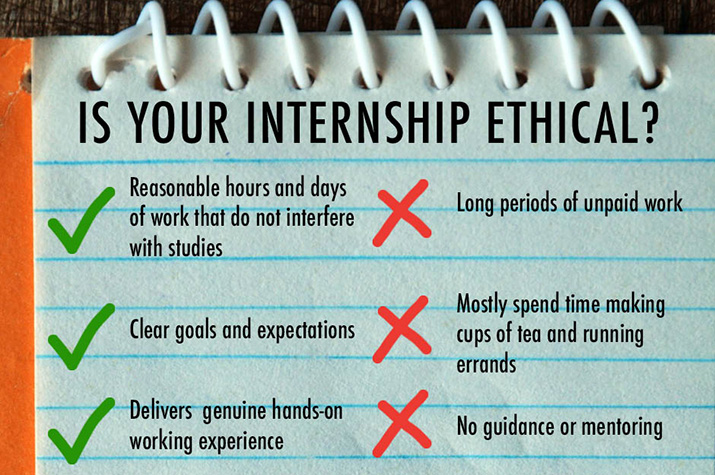Ethical internships

Photos of interns at Storyology 2015 courtesy of the Walkley Foundation.
Far too often, unpaid work is used by media companies to take advantage of young graduates desperate for a foothold in the sector. This is not acceptable.
Have you had an experience of an unethical internship? Tell us what happened below and MEAA will investigate what remedies are available to you.
You can also get more information from the Fair Work Ombudsman.
Internship complaint form

Internships have long been recognised as a valuable way for students and graduates to gain meaningful practical experience and training in their chosen career in media, communications and related fields – but they should never be a source of free labour.
MEAA, the largest and most established union for Australian media and creative professionals, has developed these guidelines to assist students and employers understand what an acceptable intern relationship looks like under the law.
MEAA defines a genuine internship as a relationship that offers practical hands-on industry experience in a closely supervised capacity for a finite period of time.
This is very different from students or graduates being classified as an intern when really they are functioning as an unpaid member of staff.
Far too often, unpaid work is used by media companies to take advantage of young graduates desperate for a foothold in the sector. This is not acceptable.
MEAA has developed guidelines for ethical internships to clearly delineate what internships are acceptable and which ones are simply taking advantage of young graduates.
This is not only to assist students, but also gives employers a framework so they are able to give students a valuable learning opportunity.
How do you know if your internship is ethical or legal? Use the following criteria as a guide – and pass them onto your current or future internship provider to help them understand what a legal internship looks like.
1. Interns should not be hired to replace employees and companies should not be employing interns in response to temporary increases in business activity.
2. Must deliver genuine hands-on experience, education, skills and on the job training opportunities.
3. A vocational placement should last no longer than one semester.
4. Letter of recommendation at the conclusion of the program (we can provide a template to employers). If the employer does not recommend the student they must provide constructive feedback on areas needing improvement.
5. Hours and days worked must be reasonable so the internship does not interfere with study commitments and still allows time to pursue other paid work. Unless they are volunteering with a charity or NGO, or receive a university credit, the intern must be paid at the appropriate Award rate.
6. An outline of the nature of the internship should be provided in writing prior to commencement.
7. Interns should be clear on their goals and expectations from the internship.
8. Interns should be made aware of the workplace health and safety policy and provided with a general procedures orientation.
9. Work delegated must be relevant to the industry and provide opportunities for students to build their skills.
Download a PDF of the guidelines here:
MEAA Guidelines to Media Internships
Last update: March 19, 2016
MEAA has a special discounted membership rate for tertiary students of just $55 a year – not much more than $1 a week.
For that, you get a range of benefits, including:
• Legal advice/consultation on employment issues;
• Four editions of the Walkley magazine annually;
• Weekly bulletins on campaigns and news in the media industry;
• Networking events, including Women in Media and Media Drinks;
• Discounts on the Walkley Foundation professional development program;
• Discounts for theatre and movie tickets;
• Access to the MEAA Journey Cover Insurance.
In addition, student members can submit their work at no cost to the awards held around the year by the Walkley Foundation, including the Young Journalist of the Year awards (which usually cost $160 per entry).
For further information about MEAA Media Student membership, call MEAA Member Central on 1300 656 513 or join online.